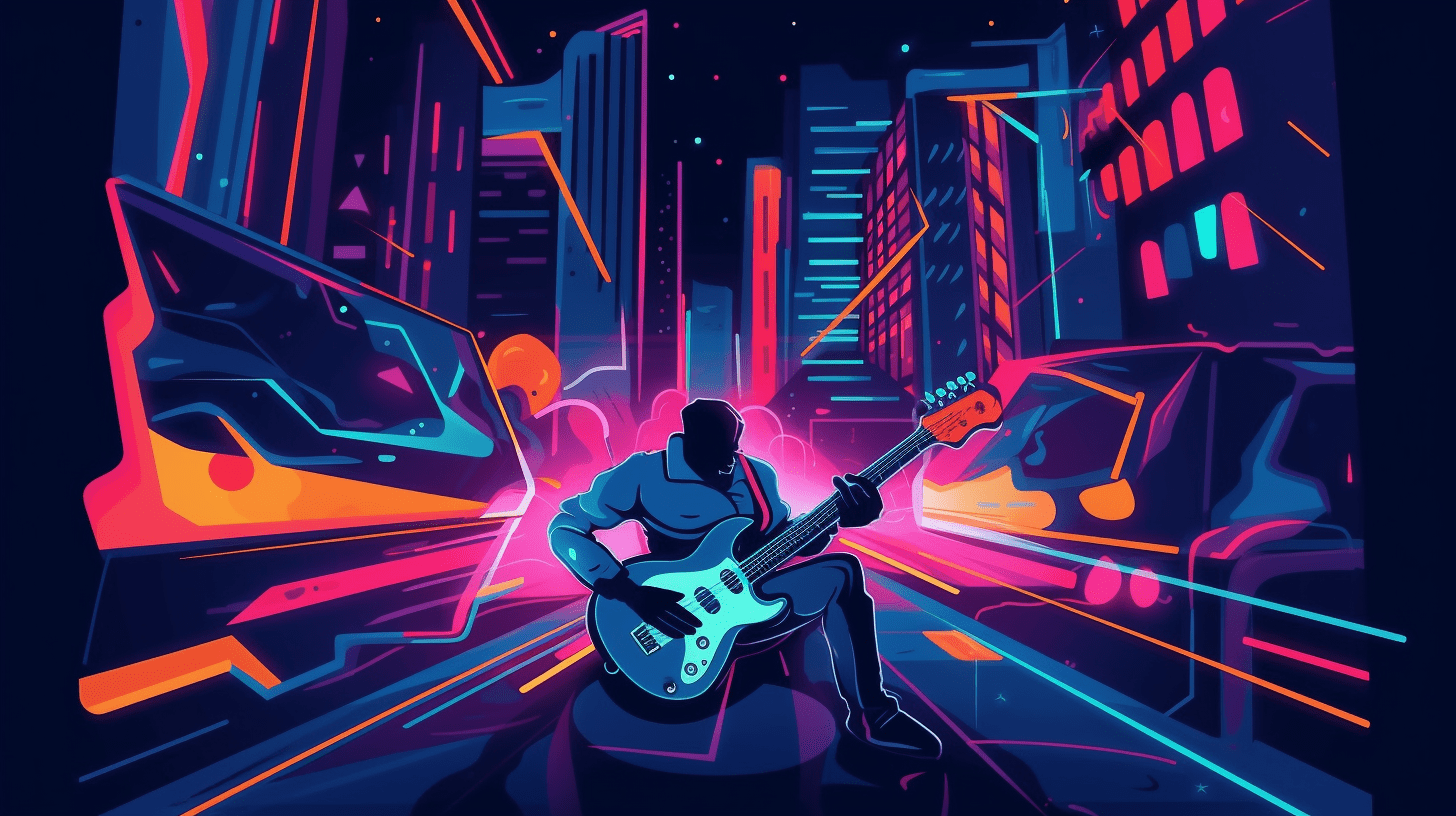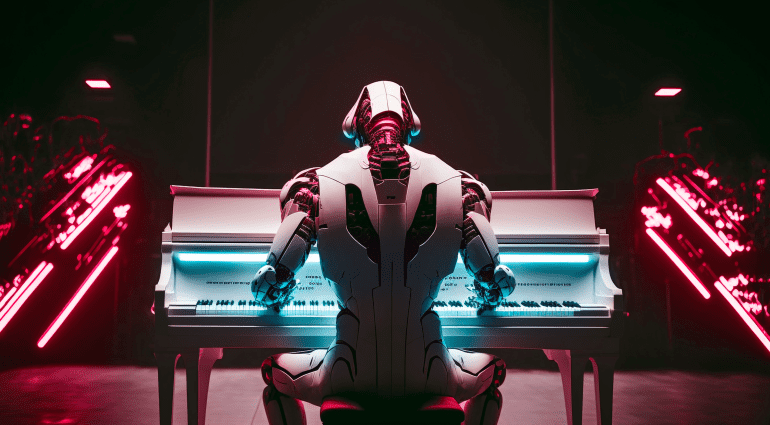Musical Creativity: The Potential of AI in Songwriting
 In the realm of music, creativity has long been considered a uniquely human endeavor, fueled by inspiration, emotion, and imagination. However, with advancements in artificial intelligence (AI) technology, the boundaries of creativity are being challenged as never before.
In the realm of music, creativity has long been considered a uniquely human endeavor, fueled by inspiration, emotion, and imagination. However, with advancements in artificial intelligence (AI) technology, the boundaries of creativity are being challenged as never before.
From composing symphonies to crafting pop hits, AI algorithms are revolutionizing the landscape of music composition, raising intriguing questions about the nature of creativity and the role of technology in artistic expression.
In this article, we embark on a journey to explore the potential of AI in songwriting, examining its capabilities, limitations, and the ethical implications of its use in the creative process.
The Rise of AI in Music Composition
The emergence of AI in music composition represents a paradigm shift in the way we think about creativity and artistic expression. By harnessing the power of machine learning algorithms, AI systems are able to analyze vast amounts of musical data, identify patterns, and generate original compositions that rival those created by human composers. Companies like OpenAI, Sony CSL, and Amper Music are leading the charge in AI music composition, developing algorithms capable of composing music in a variety of genres and styles.
How AI Music Composition Works
At the heart of AI music composition are deep learning algorithms, which are trained on large datasets of musical scores, recordings, and compositions. These algorithms use techniques such as neural networks and reinforcement learning to learn the underlying rules and structures of music, allowing them to generate original compositions based on input parameters such as genre, mood, and tempo.
By iteratively refining their output based on feedback from users or composers, AI systems are able to create music that is indistinguishable from that produced by human composers.
The Capabilities of AI in Songwriting
 AI systems have demonstrated remarkable capabilities in songwriting, producing compositions that are both technically proficient and emotionally resonant. From catchy pop tunes to hauntingly beautiful ballads, AI-generated music spans a wide range of genres and styles, showcasing the versatility and adaptability of machine learning algorithms.
AI systems have demonstrated remarkable capabilities in songwriting, producing compositions that are both technically proficient and emotionally resonant. From catchy pop tunes to hauntingly beautiful ballads, AI-generated music spans a wide range of genres and styles, showcasing the versatility and adaptability of machine learning algorithms.
In addition to generating melodies and harmonies, AI systems can also produce lyrics, chord progressions, and arrangements, offering a comprehensive toolkit for music composition.
Limitations and Challenges
While AI has made significant strides in music composition, it still faces several limitations and challenges. One of the main challenges is achieving true creativity and emotional expression in AI-generated music.
While AI systems are capable of mimicking the style and structure of existing compositions, they often struggle to capture the nuanced emotions and subtle nuances that make music truly compelling. Additionally, AI-generated music may lack the personal touch and authenticity that comes from human experience and interpretation.
Another limitation is the potential for AI-generated music to lack originality and novelty. Since AI systems are trained on existing musical data, there is a risk that they may produce compositions that are derivative or unoriginal.
To overcome this challenge, researchers are exploring ways to incorporate elements of randomness and serendipity into AI music composition, allowing for the emergence of truly unique and innovative compositions.
Ethical Implications
The rise of AI in music composition raises important ethical questions about the nature of creativity, authorship, and artistic integrity. As AI systems become increasingly proficient at generating original compositions, there is a risk that human composers may be sidelined or marginalized, leading to concerns about job displacement and the devaluation of human creativity.
Additionally, there are questions about the ownership and copyright of AI-generated music. Since AI systems are trained on existing musical data, there is a debate about who owns the rights to the compositions produced by these algorithms. Should credit and royalties be given to the programmers who developed the AI system, or to the composers whose work served as the training data? These are complex questions that require careful consideration and ethical oversight.
The Future of AI in Music Composition
Despite the challenges and ethical concerns, the future of AI in music composition is brimming with possibilities. As AI technology continues to evolve and improve, we can expect to see even greater advancements in the capabilities of AI-generated music.
From personalized soundtracks for movies and video games to interactive music experiences for listeners, the potential applications of AI in music composition are virtually limitless.
Moreover, AI has the potential to democratize music composition, making it more accessible to people of all backgrounds and skill levels.
With user-friendly AI tools and platforms, aspiring musicians and composers can harness the power of machine learning to unleash their creativity and express themselves through music in new and exciting ways.
Conclusion
The rise of AI in music composition represents a transformative shift in the way we create, experience, and appreciate music. While AI systems have demonstrated remarkable capabilities in generating original compositions, they also raise important questions about the nature of creativity, authorship, and artistic integrity. As we continue to explore the potential of AI in songwriting, it's essential to approach this technology with curiosity, caution, and ethical consideration. By embracing the possibilities of AI while also honoring the rich tradition of human creativity, we can unlock new dimensions of musical expression and pave the way for a more inclusive and innovative future in music composition.



















































